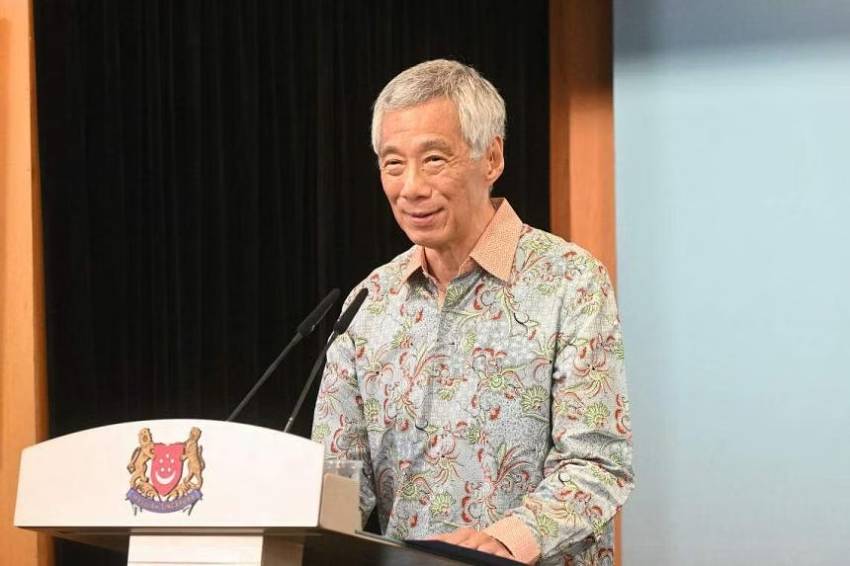Singapore: Singapore is seen as a “prize target” by terrorist groups and it continues to be mentioned in their propaganda, Prime Minister Lee Hsien Loong has said, emphasising that his nation cannot afford to let its guard down against such ultra forces.
Speaking at the launch of the Religious Rehabilitation Group’s (RRG) Majulah Gallery at the Khadijah Mosque in Geylang on Wednesday, Lee said that his government is alert against terror groups such as the Islamic State (ISIS), Al-Qaeda and Jemaah Islamiah (JI) that remain active and still influence and inspire followers worldwide.
“Singapore is seen as a prize target by terrorist groups and continues to be mentioned in their propaganda. Locally, there have been a growing number of self-radicalised individuals in recent years,” The Straits Times report Prime Minister Lee was quoted as saying, adding that his nation is on alert against terror groups.
He said that since the rise of ISIS in 2015, Singapore has dealt with 49 self-radicalised individuals under the Internal Security Act.
This is four times more than the number of cases from 2007 to 2014.
Of these 49 individuals, 37 are Singaporeans. They include women and, worryingly, many young people, he said.
Eleven are aged 20 or younger, and five of them wanted to mount attacks in Singapore.
Lee said that the Government is making every effort to neutralise the threat, and outreach to counter extremist ideologies is being increased.
“But every one of us has a role to play. Our strongest defence against terrorism is our collective vigilance,” he said.
The gallery launched by Prime Minister Lee features exhibits to raise awareness of the efforts of the RRG in combating terrorism and extremism, and propagates the message of Islam as a religion of peace, the report said.
He said staying constantly alert against extremist ideologies is Singapore’s first line of defence, and urged Singaporeans to promptly report anyone who shows signs of radicalisation to the authorities.
“We must also strengthen the racial and religious harmony that we have worked so hard to preserve,” he said.
The Prime Minister pointed out that terrorism and violent extremism exploit racial and religious fault lines to promote fear and hatred.
“Our diversity makes our social cohesion particularly susceptible to this threat. We must do our utmost to stay united and cohesive across the various racial and religious groups in our society,” he said.
He lauded the RRG’s contributions to the fight against terrorism and extremism.
Citing how in 2001 the Internal Security Department (ISD) broke up a JI cell and arrested its members after they had plotted to carry out major terrorist attacks in Singapore, he said it was not enough to uncover terror plots and stop them from happening.
The source of danger – the radical misinterpretation of Islam – had to be tackled, Lee stressed.
“We are grateful to a small group of religious scholars who stepped forward to counsel and rehabilitate the JI members. This was our first attempt at the religious rehabilitation of terrorists.
“The religious scholars took a leap of faith by working with ISD. They risked being seen as doing the bidding of the Government and being branded ‘munafik’ (hypocrites).
“But they were men of courage and conviction, who were convinced that they were doing the right thing to counter religion-based violent extremism. So, they pressed on,” he said.
This pioneering group of scholars formed the RRG in 2003. It was co-chaired by the late Ustaz Ali Haji Mohamed and the current co-chairman Ustaz Mohamad Hasbi Hassan. The group is celebrating its 20th anniversary in 2023.
Around 140 Singaporeans have been dealt with by the authorities for terrorism-related activities since 2002 Close to 90 per cent have made good progress in their rehabilitation and have been successfully reintegrated into society.







